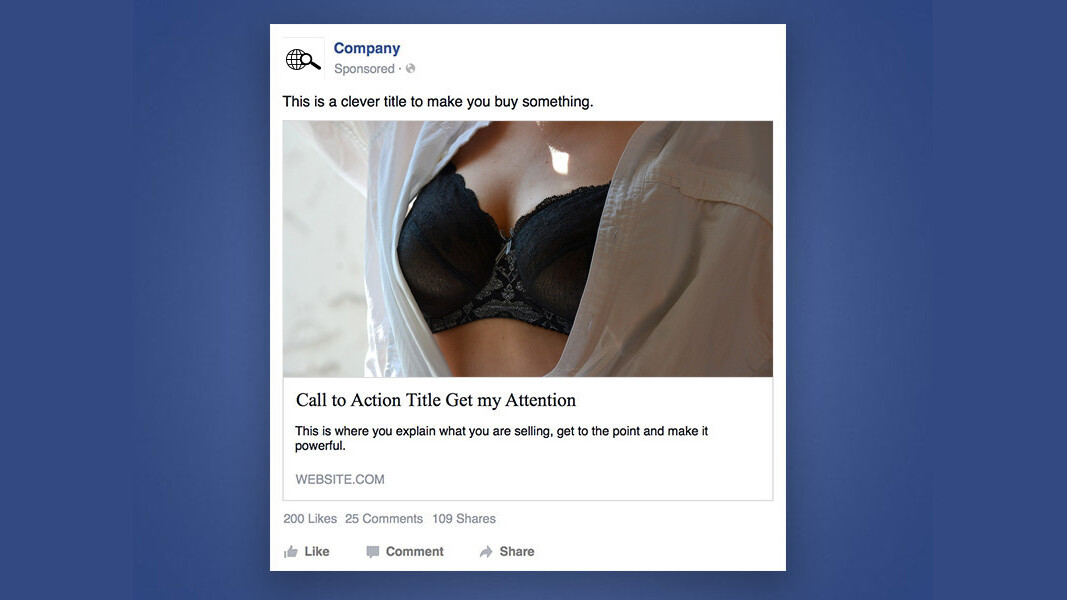
Facebook is again under fire over policies meant to curb adult content in ads. The company has recently faced scrutiny for scattershot enforcement of its own rules, seemingly penalizing women for showing skin that men get away with.
Several people reported to the New York Times that they’d had pictures taken down or rejected from ad campaigns for featuring female nudity, despite the fact that much more explicit photos of men have remained up.
Facebook’s policy on adult content in ads states that it prohibits:
- Nudity or implied nudity, even if artistic or educational in nature, except for statues
- Excessive visible skin or cleavage, even if not explicitly sexual in nature
- Images focused on individual body parts, such as abs, buttocks or chest, even if not explicitly sexual in nature
- Content portraying excessive nudity or alluding to sexual activity
Facebook has five examples of non-compliant ads on its page. Four of those have women as the primary subjects — the fifth has two people of ambiguous gender in bed together. While it could be argued that two of them might be inappropriate — a woman in bed, maybe; a woman miming a blowjob, sure — the explicit prohibition against artistic implied nudity and cleavage feel backwards.
Facebook doesn’t say why it prohibits cleavage, and it seems like nothing more than a low blow aimed at women. Infuriatingly, one picture shows a woman leaning forward slightly and looking into the camera. This image apparently “shows someone in a sexually suggestive pose.” Really, that’s apparently all it takes, even though she looks more like she’s modeling for hair conditioner.

It’s fairly common for women to be accused of being flirty in situations that, to their minds, are perfectly innocent. It’s the reason men like VP Mike Pence say they won’t be alone with a woman they aren’t married to under any circumstances, because no matter how professional or banal the setting, they seemingly believe women are seductive temptresses.
It’s reductive; it’s insulting; it’s not the least bit flattering; and the knowledge that our bodies are unwelcome or being watched is really damned uncomfortable. So when Facebook says a woman is sexually suggestive for possessing cleavage and a haughty stare, it doesn’t help one bit.
At best, Facebook enforces the rules unevenly.
Recently, Facebook removed a picture of the curvaceous Venus of Willendorf statue, despite their ad policies explicitly making an exception for statues (but not other forms of art — Michelangelo’s canon must really confuse them). Facebook later reversed the decision, saying the ad the picture was in “should have been approved.”
On the flip side, when the NYT asked Facebook about a specific ad of a man’s rippling obliques posted on a romance novel page, a Facebook spokesperson said it shouldn’t have been approved. To reiterate, Facebook’s ad policy prohibits “Images focused on individual body parts, such as abs, buttocks or chest, even if not explicitly sexual in nature.”
So while Facebook might claim its policies are in place to prevent any inappropriate material getting through, it seems fairly obvious it’s more focused on women in ads over men.
The Next Web’s 2018 conference is just a few months away, and it’ll be ??. Find out all about our tracks here.
Get the TNW newsletter
Get the most important tech news in your inbox each week.





